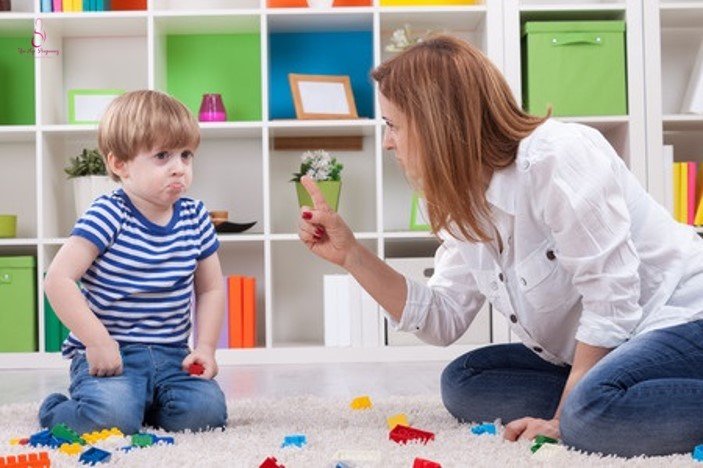The Parenting & Family Blog

How to Set Boundaries with Kids Without Being Too Strict
Parenting is a journey filled with joys, challenges, and countless learning moments. A big challenge for parents is setting boundaries with their kids. While it’s crucial to establish limits, doing so without being overly strict is a delicate balance. This blog shares smart ways to set boundaries with kids. This helps them become well-rounded individuals. We’ll explore healthy discipline techniques. We’ll cover setting limits for children and teaching self-control. All of this will happen in a nurturing and supportive environment.
Setting boundaries isn’t about control. It’s about giving guidance that helps create security, respect, and emotional growth. When children learn about boundaries, they build self-discipline. This helps them make better choices and form strong relationships. The goal is to balance firmness and flexibility. This creates a space where children feel safe, understood, and empowered to thrive.
Pro Tip:
Set clear, consistent boundaries with your children while balancing firmness with empathy. This approach fosters respect, self-discipline, and emotional security, helping children thrive in a supportive environment.
Quick Guide:
- Establish Clear Rules – Use age-appropriate language and avoid overwhelming your child with too many rules. Consistency helps them understand what is expected.
- Communicate Openly – Explain the “why” behind the rules to help your child understand their importance.
- Be Consistent – Stick to the rules and consequences to give your child stability and reinforce positive behaviour.
- Use Positive Reinforcement – Praise or reward good behaviour to encourage children to follow boundaries
- Model Self-Control – Show your child how to manage emotions and practise self-control in stressful situations
Important Tip:
Avoid being too rigid or inconsistent with consequences, as this can lead to confusion or defiance. Flexibility, empathy, and involving your child in the rule-setting process will help create a respectful and cooperative environment.
Why Setting Boundaries Matters
Encourages Self-Discipline
Setting boundaries teaches children the importance of self-discipline. When kids understand the limits their parents establish, they learn to control their behaviour. This helps them build key skills such as focus, time management, and responsible decision-making.
Promotes Emotional Security
Children thrive when they feel safe and secure. Clear boundaries create structure. This helps kids feel confident to explore and express themselves. Knowing their parents are consistent with rules helps children feel supported, even when they push limits.
Builds Respectful Relationships
When children know boundaries, they learn to respect their parents and others, too. This builds empathy, boosts social skills, and promotes healthier interactions with peers, teachers, and adults.
Step-by-Step Guide to Setting Boundaries with Kids
Step 1: Establish Clear Rules
Make clear and simple rules that fit your child’s age and development. When children know exactly what is expected, they are more likely to follow the rules.
- For toddlers: Use simple language, e.g., “No hitting.”
- For older children: Be more specific, e.g., “Finish your homework before screen time.”
Ensure the rules are consistent and easy to understand. Avoid making too many rules at once, as this can overwhelm your child.
Step 2: Communicate Openly
Share why each rule matters. This helps your child see why boundaries are important. Encourage questions and conversations about the rules. This makes your child feel involved, which increases their willingness to follow the boundaries.
- Example: Instead of saying, “No running indoors,” explain, “We walk inside to keep everyone safe.”
When children understand the purpose of the rule, they are more likely to respect it.
Step 3: Be Consistent
Consistency is key when enforcing boundaries. Bending the rules sometimes can confuse children about what’s okay. Ensure you and your partner are on the same page regarding rules and consequences.
- Example: If bedtime is at 8 PM, stick to it. Allowing frequent exceptions can lead to resistance and confusion.
Consistency gives children a sense of stability and helps them develop self-discipline.
Step 4: Use Positive Reinforcement
Positive reinforcement encourages children to repeat good behavior. Praise or reward your child when they follow the rules. This reinforces their understanding of boundaries in a positive way.
- Example: When your child picks up their toys without being asked, acknowledge it by saying, “Great job cleaning up! That was very responsible.”
- Tip: Create a reward chart to track progress and celebrate milestones.
Positive reinforcement turns boundary-setting into a rewarding experience rather than a punitive one.

How to Teach Kids Self-Control
Model Self-Control
Children learn by observing their parents. Demonstrate self-control in your daily interactions, especially during stressful situations. This teaches your child how to manage their emotions.
- Example: If you feel frustrated, take a deep breath and calmly express your feelings.
- Tip: Use phrases like, “I’m feeling frustrated, so I’m going to take a moment to breathe.” This models emotional regulation for your child.
Encourage Problem-Solving
Help your child develop self-control by encouraging problem-solving skills. When they encounter a challenge, help them find solutions and consider their options.
- Example: If your child is upset about sharing toys, ask questions like, “What can we do to make sure everyone gets a turn?” This approach promotes critical thinking and emotional regulation.
Practice Mindfulness
Mindfulness activities help kids notice their feelings and improve self-control. Introduce simple exercises like deep breathing or relaxation techniques.
- For toddlers: Use playful breathing exercises, e.g., “balloon breathing,” where they imagine inflating a balloon with each deep breath.
- For older children: Teach brief mindfulness practices, like guided meditation or body scans.
Regular mindfulness practice helps children manage frustration and reduce impulsive reactions.
Additional Expert Tips & Common Mistakes to Avoid
Expert Tips
- Be flexible: While consistency is important, be open to adjusting boundaries as your child grows. Rules for a toddler will differ from those for a teenager.
- Validate emotions: Acknowledge your child’s feelings, even when enforcing rules. This shows empathy and strengthens your bond.
- Involve children in rule-setting: When age-appropriate, allow your child to contribute to creating family rules. This fosters a sense of ownership and cooperation.
Common Mistakes to Avoid
- Being too rigid: Strict enforcement without compassion can lead to rebellion. Balance firmness with empathy.
- Inconsistent consequences: If consequences vary or are not enforced, children may test boundaries more frequently.
- Over-explaining: While communication is important, lengthy explanations can overwhelm young children. Keep it clear and concise.
Advanced Insights & Expert Recommendations
Tailor Boundaries to Individual Needs
Each child is unique. Adjust boundaries based on your child’s temperament and developmental needs.
- Example: A highly energetic child may need structured physical activities, while a shy child may benefit from gentle encouragement to try new things.
Foster a Growth Mindset
Encourage your child to have a growth mindset. Praise their effort, not just their successes. This encourages resilience and promotes a love for learning.
- Example: Instead of saying, “You’re so smart,” say, “I’m proud of how hard you worked on that project.”
Seek Support When Needed
If you find it hard to set boundaries or deal with tough behaviour, think about getting help from parenting coaches, child psychologists, or family counsellors. Professional guidance can provide tailored strategies to support your child’s growth.
FAQs
1. How do I know if my boundaries are too strict?
If your child often feels scared or anxious about making mistakes, your rules might be too strict. Effective boundaries promote security and respect, not fear. Watch for signs of emotional withdrawal, defiance, or anxiety. These may show that changes are needed.
2. What should I do if my child repeatedly crosses boundaries?
If your child consistently tests boundaries, stay calm and consistent with consequences. Reinforce the rule, explain the consequences, and follow through every time. Use positive reinforcement when they make good choices.
3. How can I help my child accept boundaries without constant resistance?
Involve your child in the rule-setting process when possible. Allowing them to share their thoughts makes them feel respected, which increases cooperation. Use positive reinforcement to encourage compliance.
4. Are timeouts effective for setting boundaries?
Timeouts can be effective when used properly. Keep them brief (1 minute per year of age) and explain why the timeout is happening. Avoid using timeouts as a punishment, but rather as a way for your child to calm down and reflect.

A Parenting Guide to Healthy Discipline and Self-Control
Setting boundaries with kids is key to parenting. It takes patience, understanding, and consistency. Healthy discipline, clear limits, and teaching self-control help create a caring environment. This approach supports their growth and development.
The goal is to guide and support your child as they explore the world. Help them build skills to become responsible, respectful, and resilient individuals. As you embark on this journey, keep an open mind, be flexible, and seek support when needed.
Are you ready to implement these strategies and create a harmonious environment for your family? Begin today by thinking about your current boundaries. Consider how to adjust them to better help your child’s growth and development. Together, let’s build a future where children thrive and reach their full potential.









